12 Tips for New Kindergarten Teachers
Kindergarten is a magical world all of its own. It is the foundation upon which students develop as learners and as individuals, socially, emotionally, and academically. Students in Kindergarten will grow as thinkers before your very eyes. Whether you are a new teacher about to jump in or you are making the move from another grade, below are 12 tips for new Kindergarten teachers.
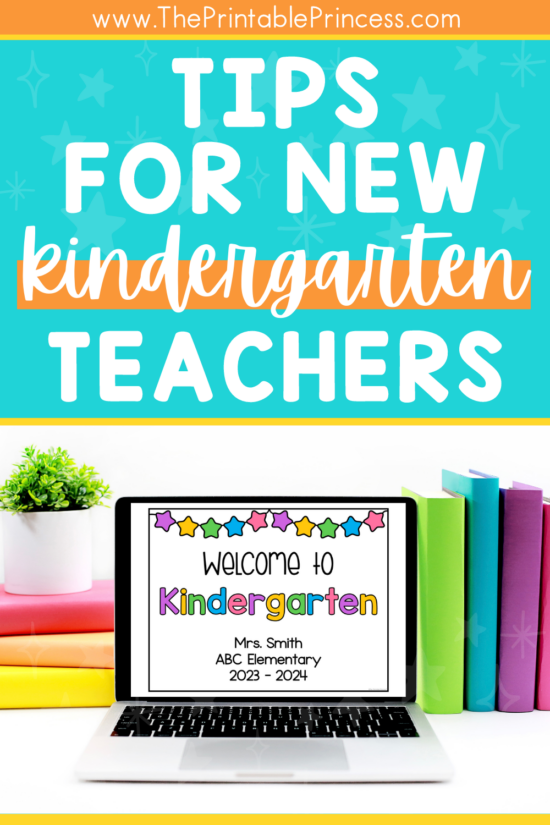
Tip 1: Have Patience
The first and foremost tip for new Kindergarten teachers is to understand that for many students, this is their first schooling experience. This may be the longest they have ever been away from mom or dad – or their house and comfort space. Some may have never walked in a line before or needed to wait their turn to talk.
It is so important to have realistic expectations for the first week of Kindergarten. To learn more about setting these realistic expectations along with other tips for Kindergarten teachers, check out this blog post.
The good news is, students will adjust and they can be taught. After a few weeks, they'll get the hang of the schedules and routines. I always think of it this way, we get the chance to help shape how our students will feel about school from now on. That is a pretty special job!
Tip 2: Prepare for the Unexpected
Let's be real. Sometimes kids have accidents. A little one may have a bathroom accident or spill their chocolate milk down their shirt at lunch. It happens, believe me.
As part of their school supply list, consider asking parents to send in a change of clothes for their students (including underwear and socks). Place them in gallon-size, zip-top bags and label them with each student's name. You can keep the change of clothes in the child's backpack, cubbie, or the classroom. Then if a student has an accident, you'll have a change of clothes available without needing the parent to come to school.
Also consider that you might need some unexpected time off. Situations like illness, last minute meetings, or appointments might throw off your lesson plans. If that is ever the case, it is best to be prepared. My Plans in a Pinch resource is a fantastic way to have emergency sub plans waiting at your fingertips. Imagine having no prep literacy, math, science, and social studies activities and worksheets on hand for when those unexpected matters pop up.
Tip 3: Minimize the Tears
It's totally normal to have a few students that cry on the first day of school. These little people have a lot of changes headed their way, which means a lot of adjusting. The good news is, there are things you can do to help students cope.
To combat the tears, you might consider having a stuffed animal that they can hold or an enjoyable activity like morning tub centers waiting for them. Take time to sit by all of your students and chat with them to help them feel welcome and more comfortable.
One teacher I know invited students to bring in pictures of their families and created a mini-bulletin board display. If you want more tips, check out this article for eight practical tips to help students cope with separation anxiety.
Tip 4: Double Check Dismissal
This tip for new Kindergarten teachers is ultra important! There's nothing worse than nearing dismissal time only to realize you're unsure how a student is going home. During orientation is a great time to ask parents about a student's transportation and then confirm again on the first day of school.
Make sure parents know what time dismissal is and what the procedure is. Double and triple-check how each student will be going home. Write it down or add it to your lesson plans so you can take that with you when the bells rings.
A great way to keep track is to create name tags or color-coded paper wrist bands so you can easily identify how each student is going home. Attach the wristband to the grab handle of each student's backpack so they don't go missing or damaged throughout the day. Car riders have one color wrist band, while bus riders have a different color (write the bus number on the wrist band). If they are meeting a sibling, make sure you or a para walk them to the older sibling. Do not take the students' word on how they are going home, always verify with a parent or guardian.
Tip 5: Ditch the Duty-Free Lunch
As teachers, duty-free lunches are the time of day where we get things done: use the restroom, make copies, check our mailbox, oh…and eat! Unless your cafeteria has a lot of helpers, plan on not having a duty-free lunch the first few days of school.
Students will need help getting through the lunch line, holding those wobbly trays, finding their lunch table, and opening packages or containers. Plan to be available to help your students navigate the cafeteria. If you're able to give your students a tour of the cafeteria prior to lunch, that can help make the transition smoother.
Once you get them all sat down and ready to dig in, sit down and have your lunch with them. They will feel safer and be more likely to eat knowing that you are there right beside them.
Tip 6: Allow Time for Adjustment
So much is new for incoming Kindergarteners. They have a new school, a new classroom, a new teacher, and new friends. Allow the students time to feel comfortable in this new space and with all of the new faces that come with it.
Don’t plan much for the first week of school. You don’t need to dive into teaching students to read and spell right away. Simple activities like setting out play dough, blocks, plastic bears, and other math manipulatives will keep their attention. Kindergarten morning tubs are a great example of a resource to utilize when thinking about differentiation and exploration.
Remember to keep things simple at the beginning of the year. The last thing you want is a child to feel frustrated on the first day because something was too hard.
Tip 7: Have All of Your Supplies Ready
Kindergarteners aren't known for their attention span or their ability to sit still. It's important to use your planning time wisely so that you are prepared for activities. Have your copies made and all of the tools or manipulatives you will need ready and nearby.
Sometimes your activity will take ten times longer than planned and other times it won't take the full time, so make sure you have back-up activities or extra read aloud books ready to go.
Tip 8: Practice Procedures Again and Again
You will need to teach your brand new Kindergarten students every procedure you will want them to follow throughout the year, and have patience in the process. You may feel like you are overdoing it, but whatever you do, don't skip this! Trust me, you'll be glad you took the time early on to do this.
An excellent first step is to make a list of every procedure that they will need to know. This list might include unpacking/packing up, how to use the restroom, how to get their lunch, how to ask a question, where to sit on the carpet, and how the papers will be passed out. The list goes on.
Allow extra time during transitions (like cleaning up, getting ready for lunch, and dismissal) so that you can model and practice the procedure. I think it's important to provide examples and non-examples, which is why I like to model what not to do. Feel free to be silly when demonstrating the wrong way. Your kids will laugh and you can laugh with them, explaining how silly it would be to do it that way. Remember that each day is a new day, so you'll need to model, practice, and repeat.
Another thing to mention is counting. No – not teaching your students to count (yet). Count heads often to make sure you have all of your students. Before you leave the classroom, count to make sure everyone is in line and there's nobody in the bathroom. Before you leave the cafeteria, count to make sure you have all of your students in line. Anytime you leave the room, the playground, specials, lunch, etc – always do a head count!
Tip 9: Read Aloud. A Lot.
All students love when somebody reads to them. Read alouds are an easy activity to plan for and one that you can do several times throughout the day. In fact, I highly recommend reading aloud several times a day, especially in the beginning of the school year.
Select books like We Don't Eat Our Classmates, First Day Jitters, and No, David! as some great starter examples for discussions on impulsivity, classroom rules, and emotions. Books are also a great way to extend vocabulary and get kids talking by asking questions.
Tip 10: Don't Skip on Social Skills
Social-emotional development is a big deal in Kindergarten. This time of year is where students learn to interact with others, take turns, share, and solve problems. It is important that you allow students time to interact with each other. Another piece of advice is to mix up your students so they can all get acquainted.
One activity that is easy to implement in your own classroom is partner draw. Pair students up with a partner in the class, and have them work together to create a unique work of art. Have them trade-off after 30 seconds at a time, until 5 minutes is up. Each pair can then talk about their drawing with the rest of the class. This activity can be great following a class read aloud. It allows students to practice taking turns and sharing while working together with a new friend!
Tip 11: Keep It Short. Take Lots of Breaks.
We’ve already established that attention spans are short, so keep activities brief and on their level. Brain breaks and songs are a great way to break up the day and get the wiggles out. Go Noodle, Dr. Jean, and Jack Hartmann all offer fun songs and activities to help get the wiggles out.
Learn a few age-appropriate transition games and activities to tuck in your back pocket. You’ll want games that are simple, quick, and require no-prep or materials.
A quick game could be having each student take turns saying words that begin with certain sounds. For instance, the first student starts by saying a word that starts with A. The next student says a word that begins with B. Then, the next student says a word that starts with C. The game continues until you get to Z. Students need to pay attention so that they know what letter they need a word for when the chain comes to them. Check out this blog post for lots of Kindergarten appropriate time-filler ideas and advice.
Tip 12: Make Connections.
Connections are vital to the success of your classroom. Your students need to know that you genuinely like them and care about them. Find out what their interests are, what they like, what excites them. For more ideas on making connections, check out these tips for How to Build Student Relationships.
Making connections with your students isn't the only important relationship you should build. It's important to make connections with other teachers in your school and even online in Kindergarten Facebook Groups. Having other teachers to talk to who understand your life makes it more fun and less stressful.
As a teacher, it is so important to have a big heart and an open mind. Don't forget to laugh with your students, celebrate their successes, and enjoy the year. These Kindergarteners will be honest, true to themselves, and utterly resilient, so just remember to be your authentic self!
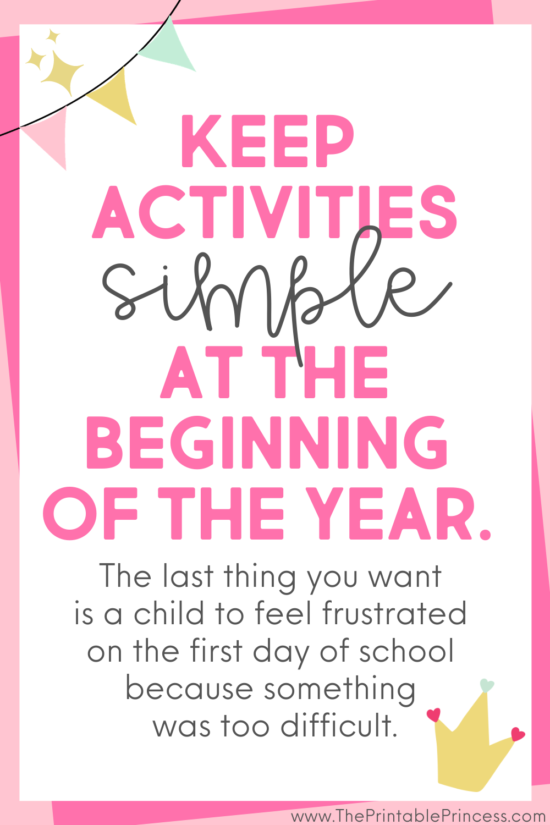
I hope these tips and tricks support you as you take on your role as a new Kindergarten teacher for the school year ahead! What are some tips that you use in your Kindergarten classroom? Tell me about them in the comments below!

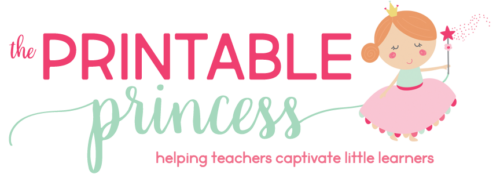
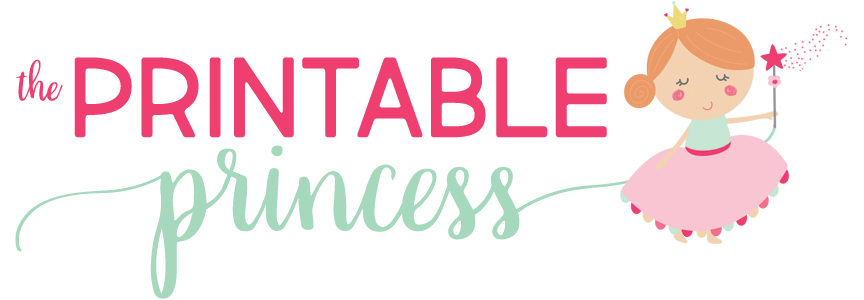
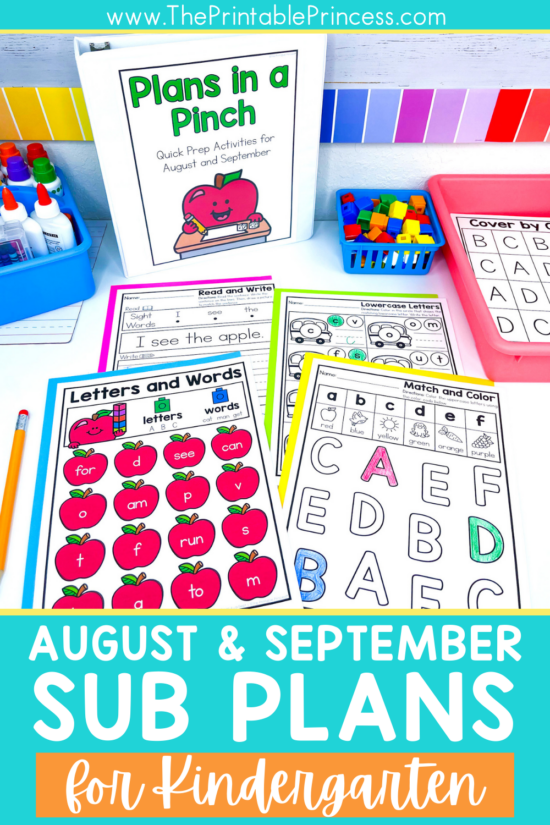
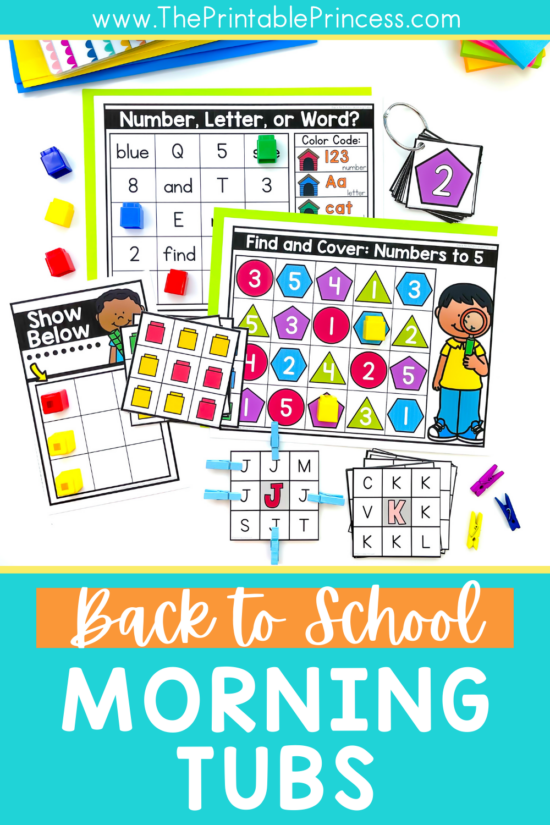
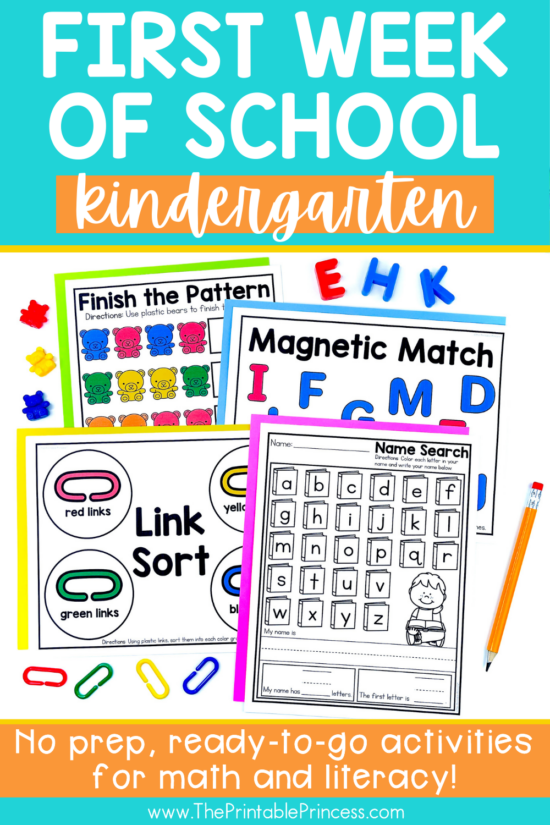
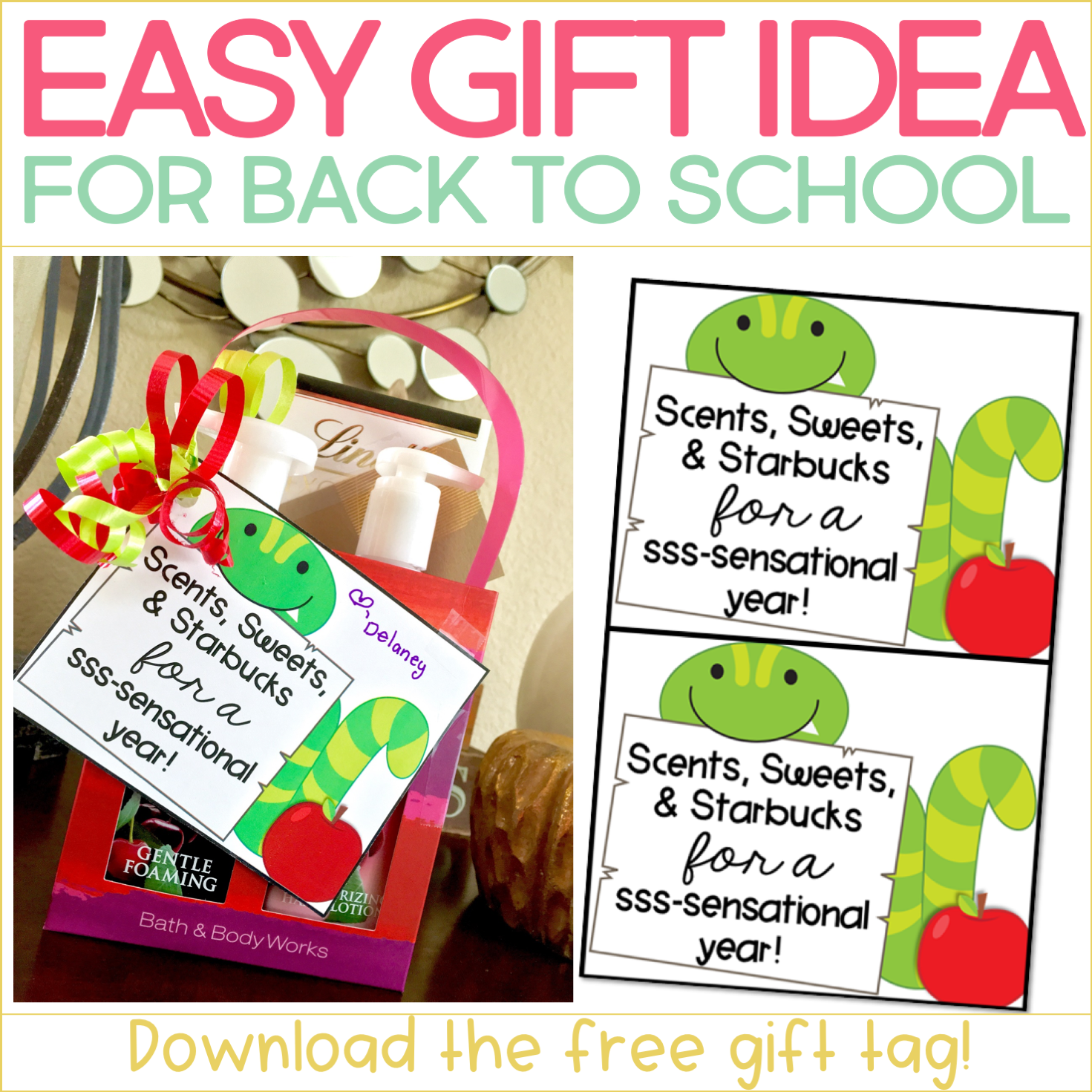
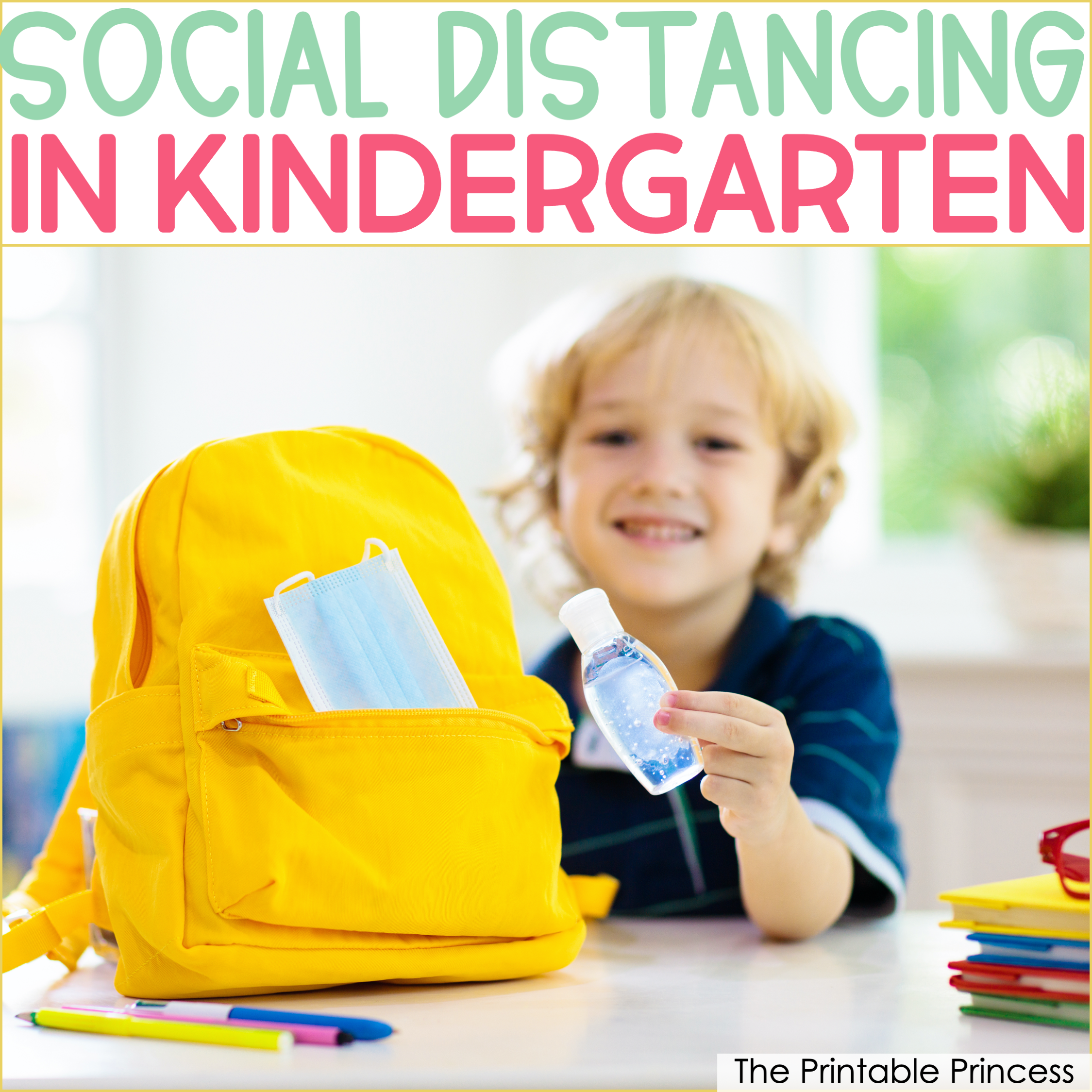
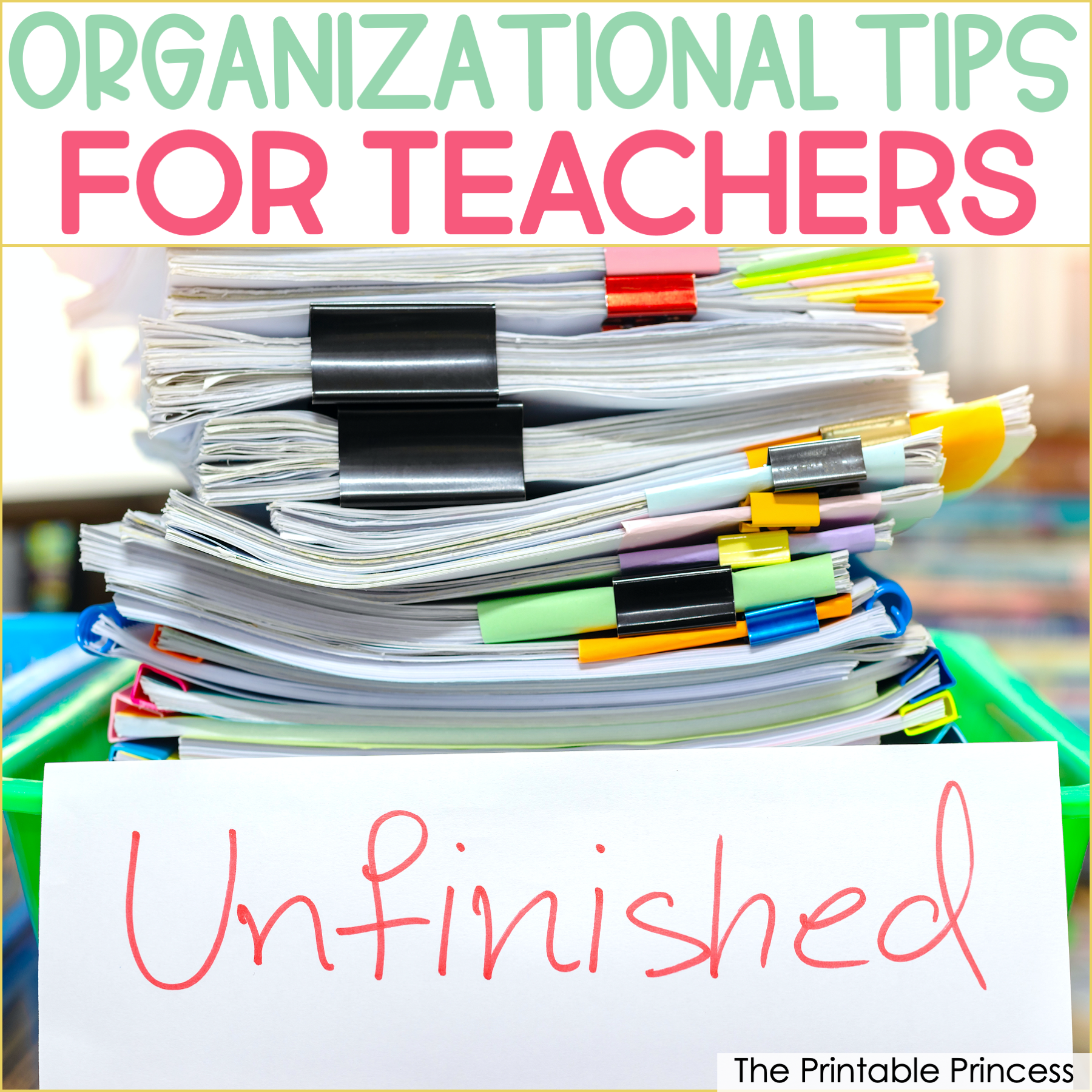
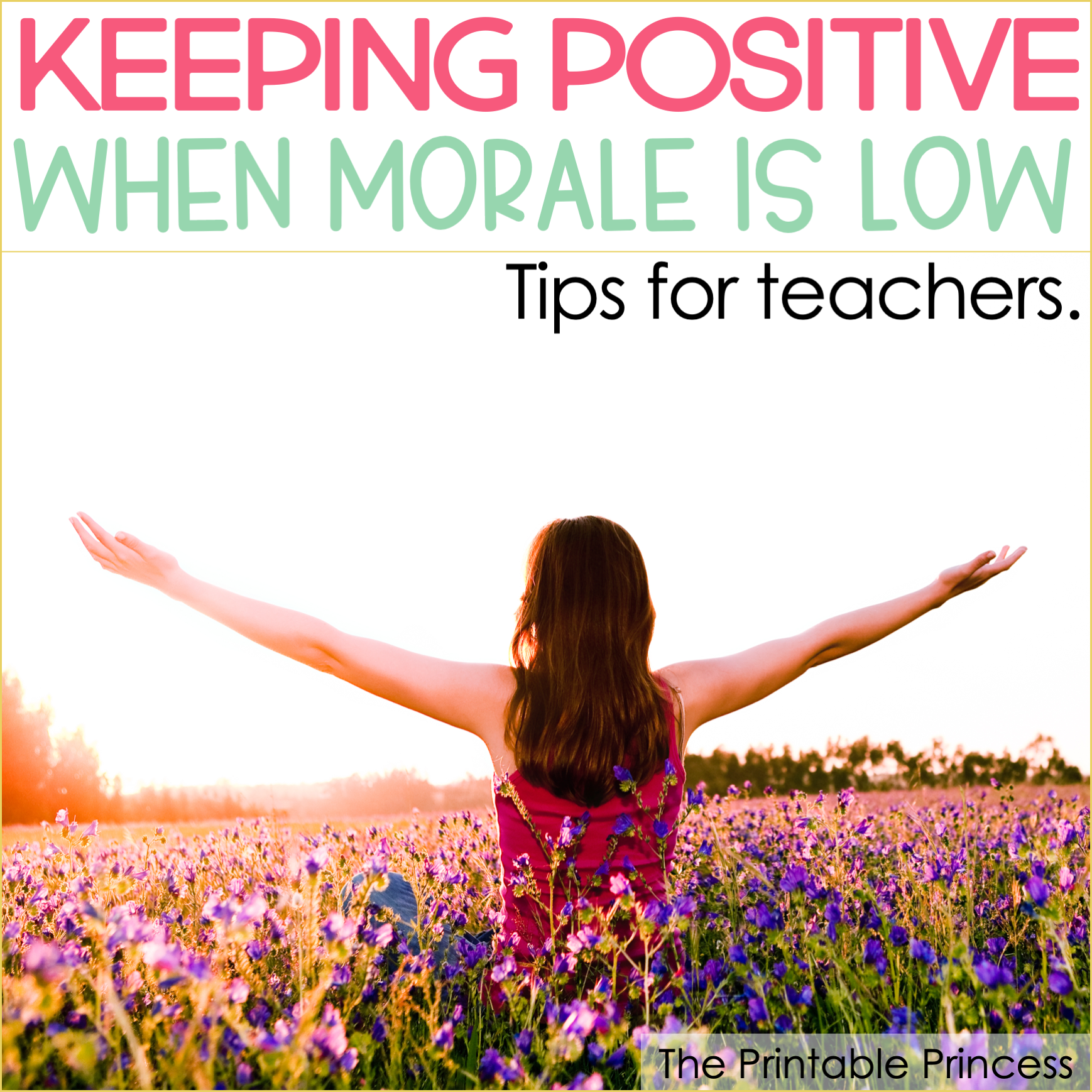
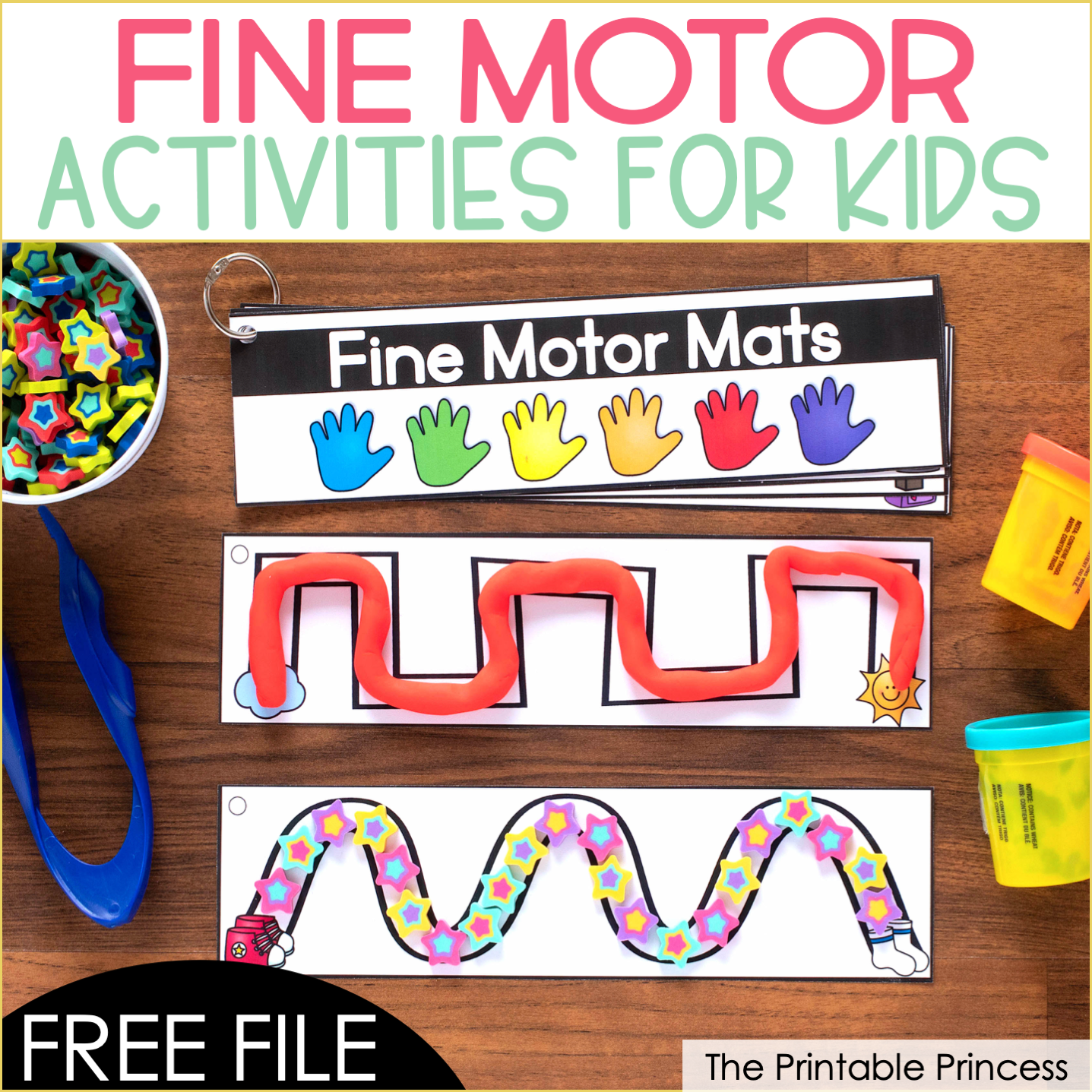
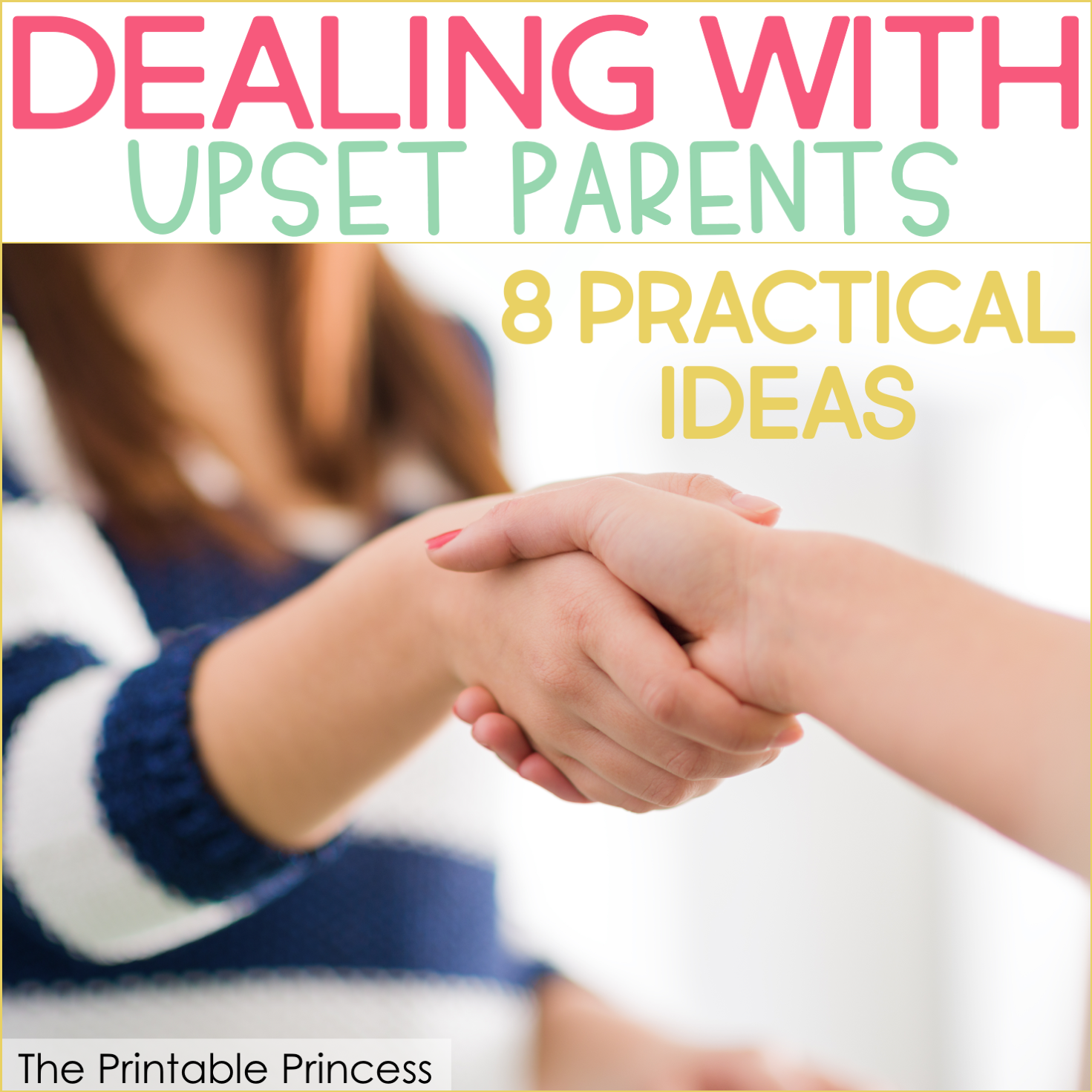
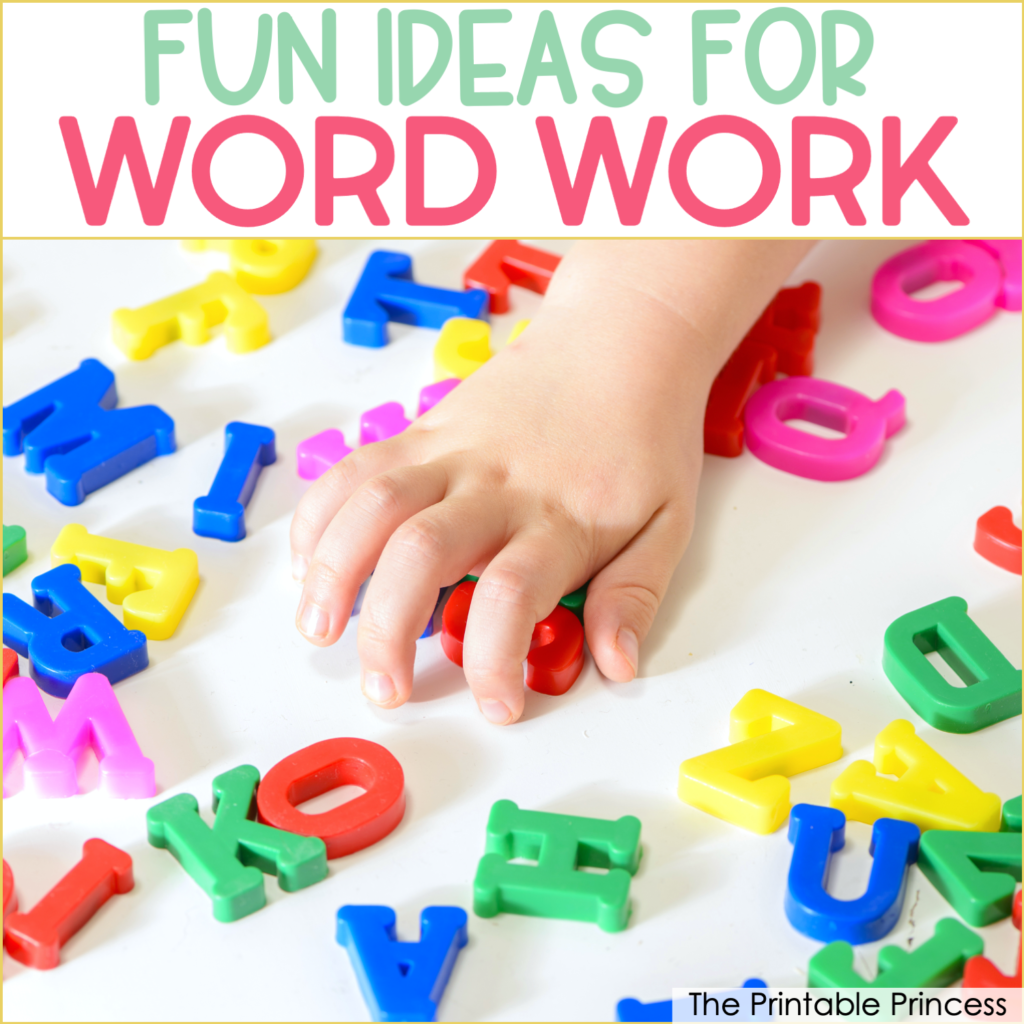
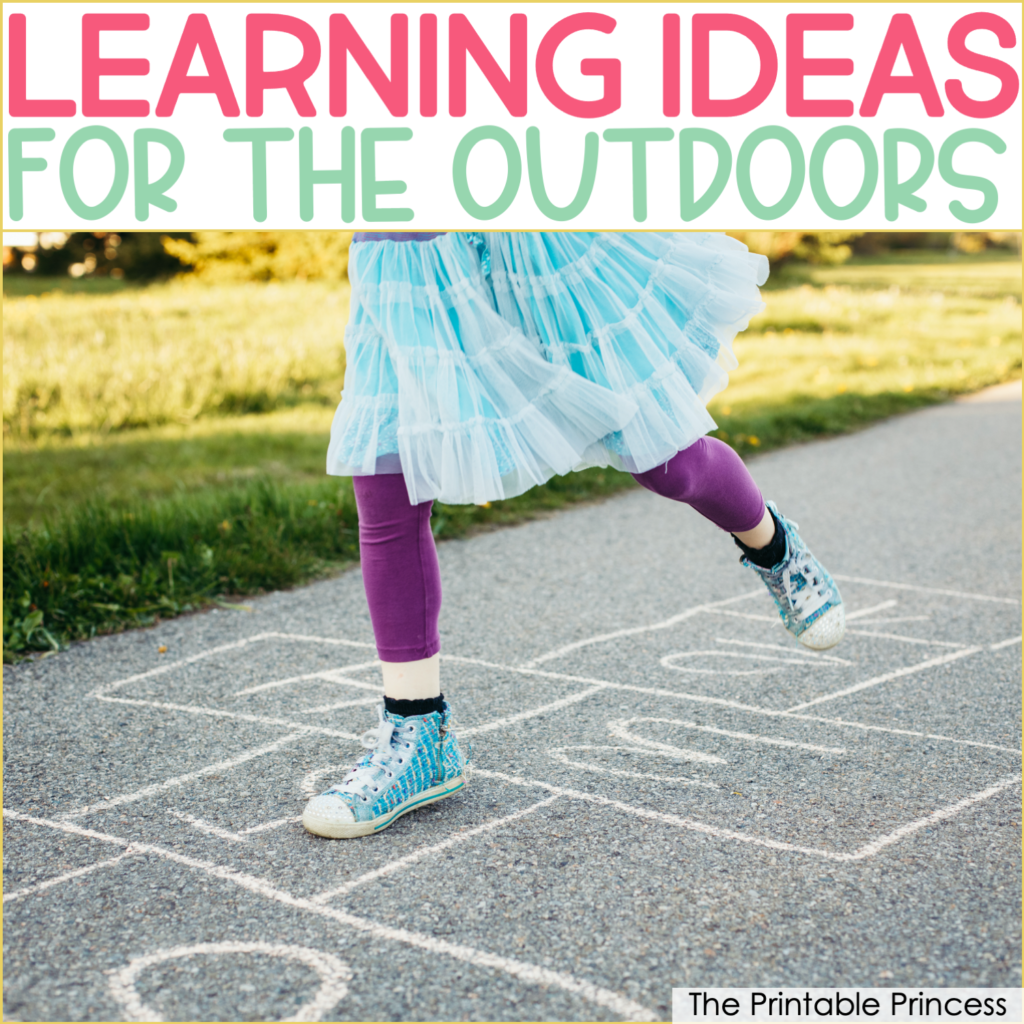
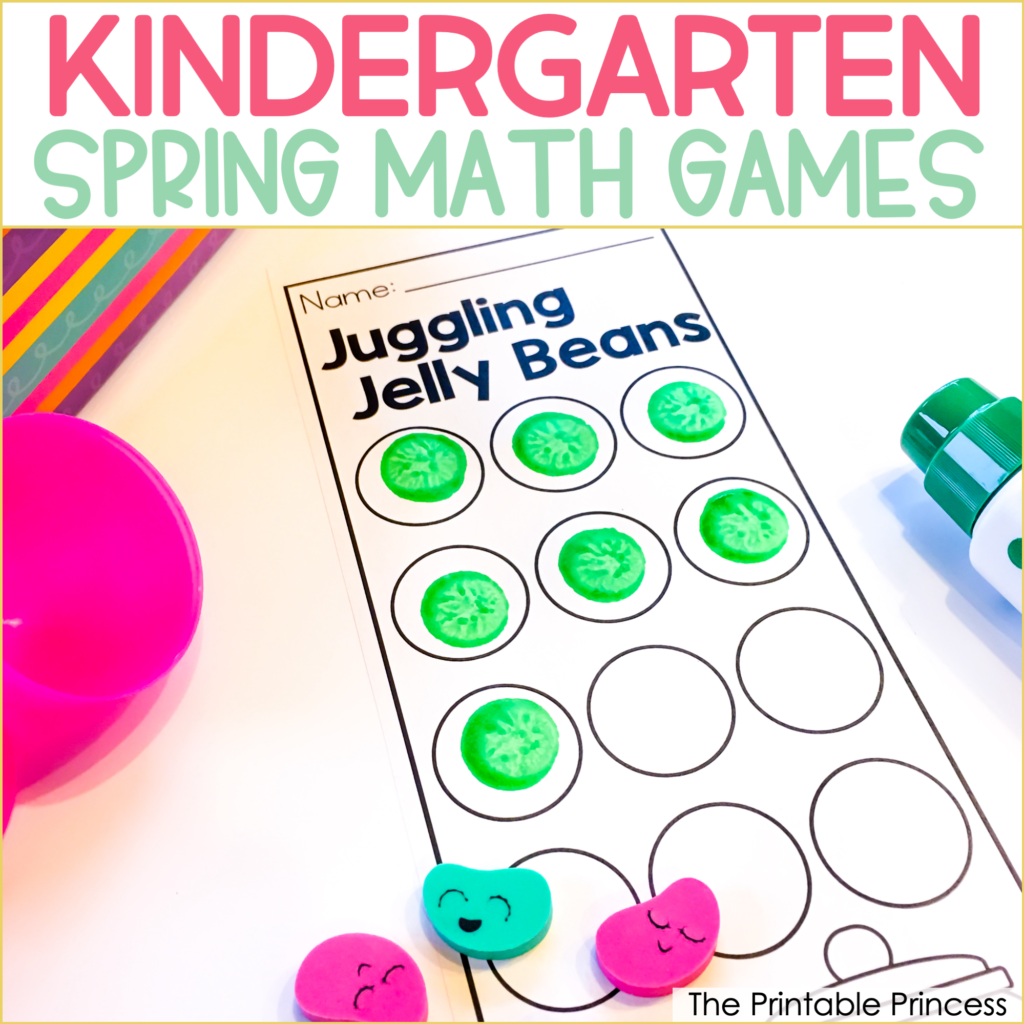
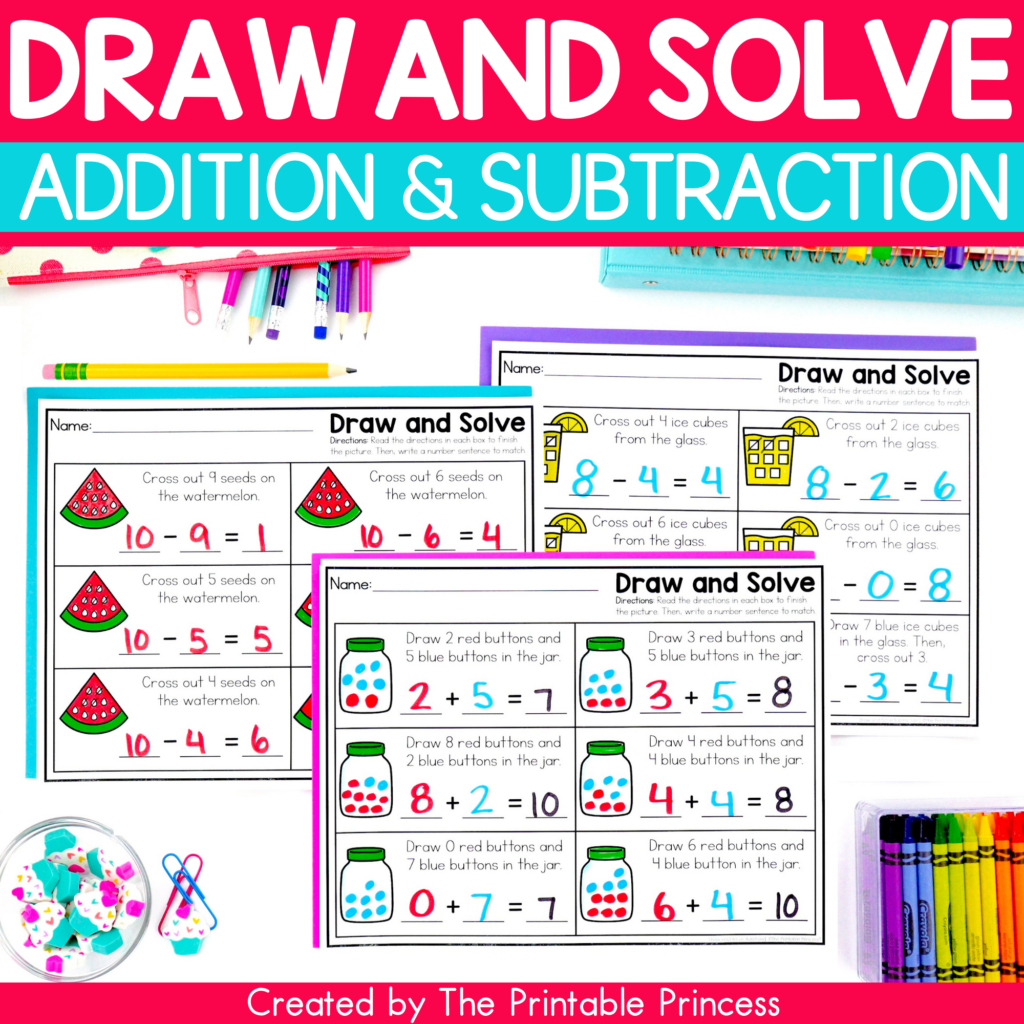
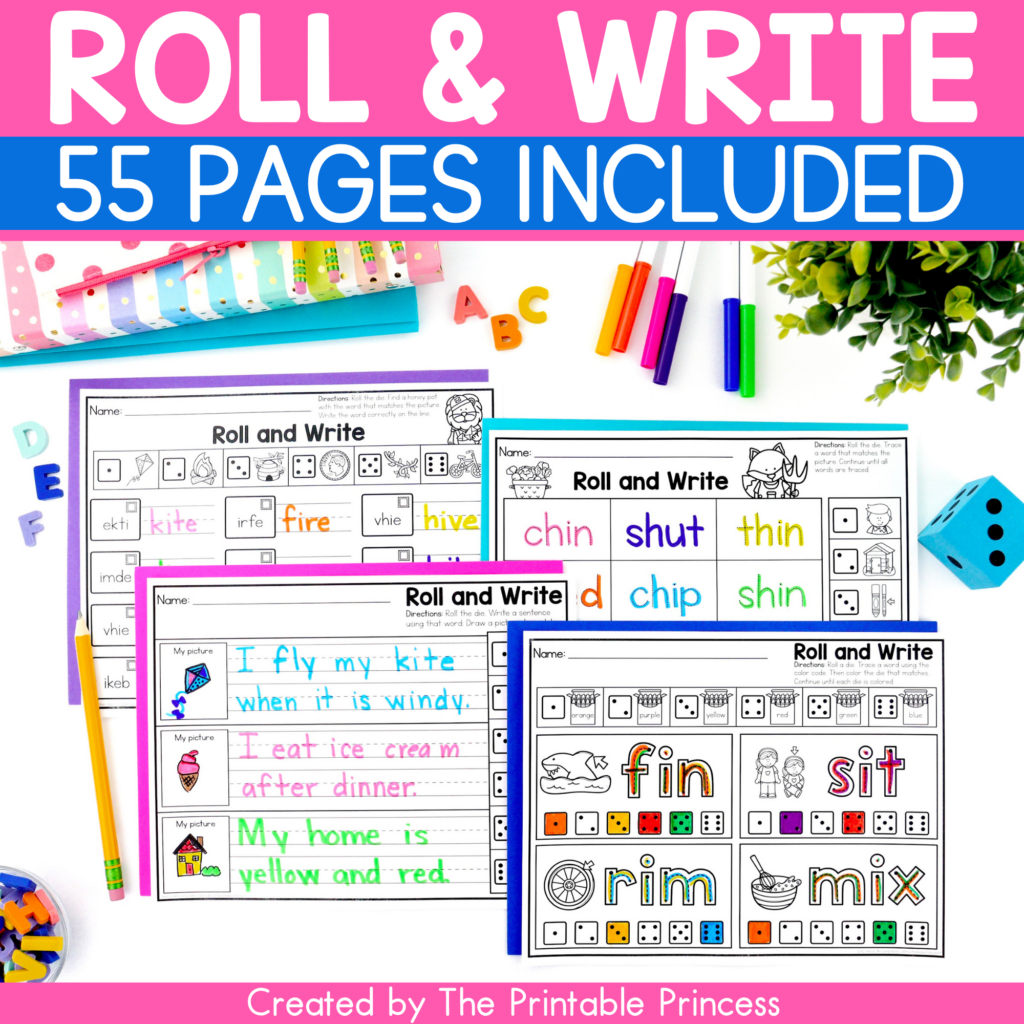
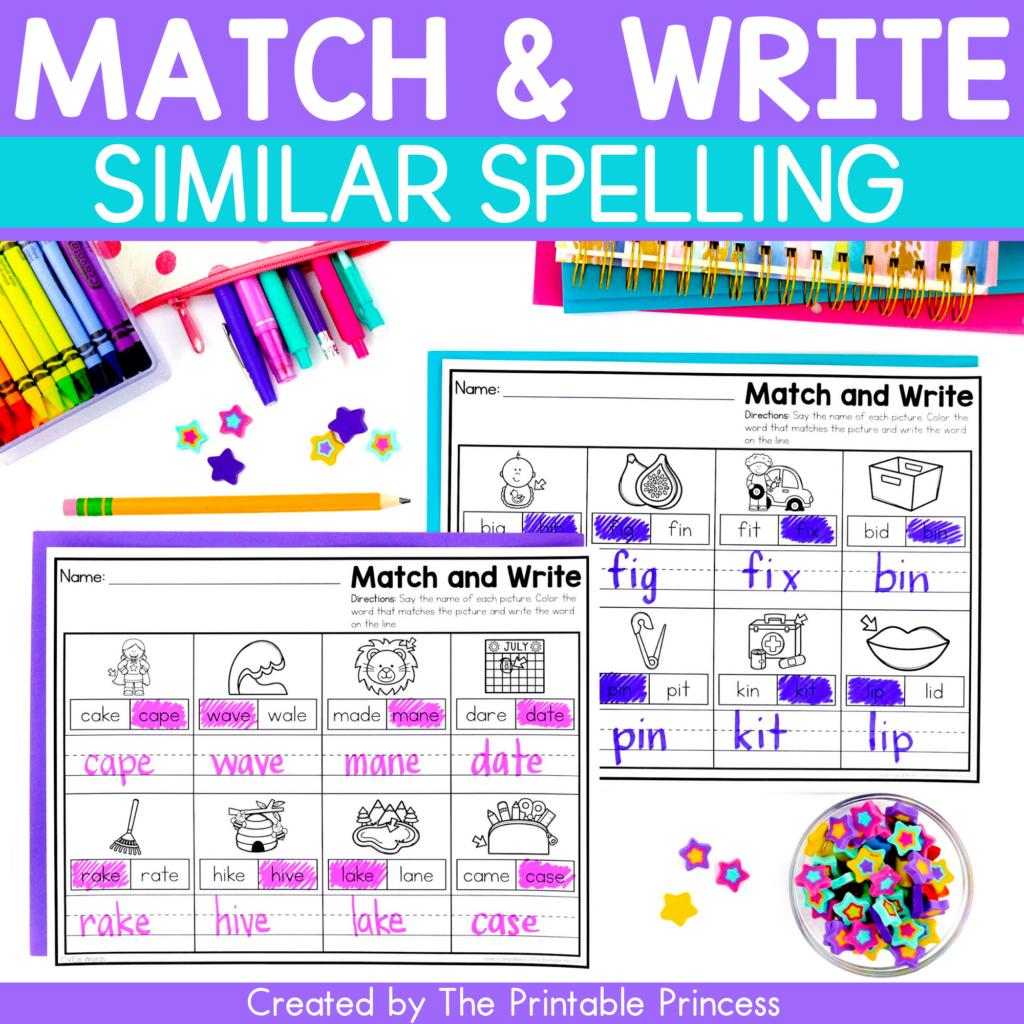
This is so helpful! Thank you so much for this. This will be my first year teaching, and these tips are invaluable. Thank you!
Awesome! I’m so glad this post was helpful, Michelle. Best of luck on your first year teaching!
-Melissa